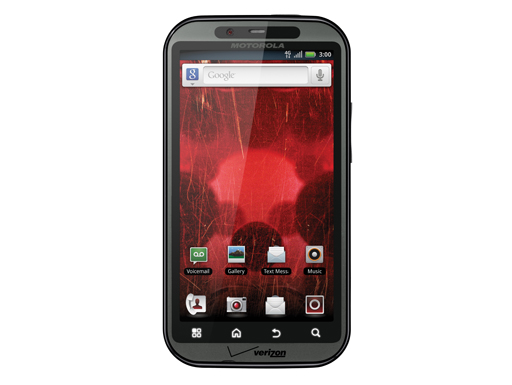Immersion Sues Motorola Over Haptic Feedback Patent
Immersion is suing Motorola over touch feedback integration its smartphones.

Immersion, which considers itself as the pioneer of a technology that first emerged in "force-feedback" joysticks in the mid 1990s (and later made its way into rumblepack game controllers and strange touch-feedback mice), today licenses its haptic feedback technology to a range of vendors that offer touchscreen devices. Immersion rose to fame when it sued Sony over the use of force-feedback in its PlayStation controller, which handed Immersion a total award of nearly $150 million between 2006 and 2009.
While Immersion used its 6,424,333 and 6,275,213 patents to license its technology to companies such as Sony and Microsoft, it has specific haptic feedback patents for "touchpads". The critical patent 6,429,846, entitled “Haptic Feedback for Touchpads and Other Touch Controls" was issued in August of 2002. Four updated versions (7,592,999; 7,982,720; 8,031,181; 8,059,105) of this patent were granted under the same title between September of 2009 and November 2011. Immersion also alleges that Motorola is infringing on its 7,969,288 patent, which covers a “Force Feedback System Including Multi-Tasking Graphical Host Environment and Interface Device."
According to the plaintiff, Motorola is violating all patents with devices that include the Droid Razr, Droid 3, Droid Bionic, Photon, Droid X2, Atrix, Atrix 2, Admiral and Xprt.
Immersion is asking the court to award triple damages for the willful infringement on its patents. Motorola has not yet responded to the suit.
Get instant access to breaking news, the hottest reviews, great deals and helpful tips.
Douglas Perry is an author and journalist from Portland, Oregon. His many articles have appeared in the likes of Tom's Guide, Tom's Hardware, The Oregonian, and several newspapers. He has covered topics including security, hardware, and cars, and has written five books. In his spare time, he enjoys watching The Sopranos.
-
errorcode99 Blablabla sues blablabla over blabla pentent, demands blabla. again and again and again... this has to stop and companies need to start being competitiveReply -
dirian How is it legitimate?? Where is immersions device using these patent?? (crickets) ok then, i say they have had more than enough time to develop one; its time to invalidate the patents.Reply -
A Bad Day There are three types of patent holders:Reply
1. They constantly develop and update their stuff, like ARM. ARM doesn't manufacture processors, but it does constantly develop new architectures.
2. They sit on bland, obscure patents, such as patents dating back to the late 1990's or early 2000's, and are only widely known when they file lawsuit. RAMBUS would be a great example.
3. They use patents to obstruct their competitors and to gain market advantage over them. Pretty much every tech company falls under this category, including Apple. -
maxwebb very good to see patents still being enforced.Reply
apparently those who are against patents wouldn't mind someone bringing a handful of goliaths to their house, throwing them out the door, and take over their property.
does no one understand http://en.wikipedia.org/wiki/Intellectual_property ?
there does stand, of course, possibilities such as http://en.wikipedia.org/wiki/FAIR_USE_Act that would *potentially* allow a judge to legally allow the sharing of property without consent or compensation.
